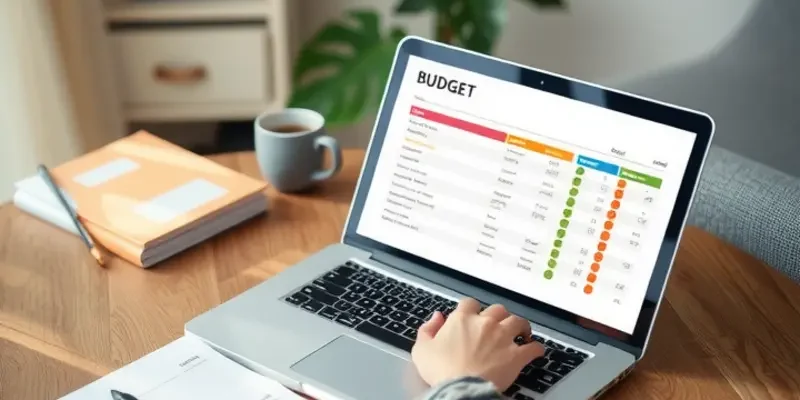Navigating the renting landscape can be a daunting experience for young professionals, first-time renters, students, couples, and families alike. Understanding how to manage finances effectively while searching for a home to rent is crucial for achieving stability and peace of mind. With rising rental costs and the ever-present challenge of budgeting, having a structured approach to saving while renting is more important than ever. This article offers actionable saving strategies tailored to your specific life stage, whether you’re a single professional scaling the career ladder, a couple planning their future together, or a family aiming to set solid financial foundations. Say goodbye to overwhelming expenses and hello to clear steps that can help you thrive in your rental journey. Discover tips, tricks, and insights designed to empower you to make sound financial decisions and navigate lease agreements with confidence.
Creating a Robust Rental Budget

Creating a rental budget starts with understanding all the expenses involved in renting. While rent is often the most significant expenditure, a thorough budget includes more than just this monthly payment. Knowing the complete scope of costs will help in avoiding unpleasant financial surprises.
First, consider these essential expenses beyond your rent: utilities such as electricity, water, and gas. You should also factor in internet and cable if applicable. If you own a vehicle, include parking fees and gas expenses. If public transport is your choice, account for travel passes or tickets. Don’t overlook renter’s insurance, which can protect your belongings against theft or damage.
Once you’ve identified your expenses, categorize them as fixed or variable. Fixed expenses, like rent and insurance, remain consistent monthly. Variable expenses, like utility bills and groceries, can fluctuate. Recognizing these distinctions is valuable for forecasting your monthly expenditure and savings capacity.
Tracking spending is crucial. Start by documenting your expenses for a month. Digital budgeting tools or a simple spreadsheet can help maintain this record. Monitoring spending habits will reveal areas where you can potentially save money. Explore resolving rental billing errors for insights on managing unexpected or incorrect charges.
Setting savings goals is another essential component. Examine your financial status and set realistic, achievable targets. Consider adopting the 50/30/20 budget rule: allocate 50% of income to needs, 30% to wants, and 20% to savings. Adjust percentages to better fit your individual circumstances.
Differentiate between wants and needs. Housing and food are needs, while dining out and entertainment are wants. Balancing these factors will keep your budget healthy and help prioritize spending.
Whether living alone or with housemates, communication and clarity are vital. If you’re sharing space, discuss shared expenses openly to prevent misunderstandings. Consider using a shared expense app to streamline this process.
This chapter provides tools to build a financial strategy that is both proactive and adaptable. Continuing to refine and update your budget as your circumstances change is essential for long-term financial stability as a renter.
Navigating Lease Agreements with Confidence

Signing a lease can feel like navigating a maze of unfamiliar terms and conditions, particularly for first-time renters. However, by understanding key clauses and common pitfalls, you can sign with confidence and secure favorable terms. Start by carefully reading the entire lease. Skimming may lead to missed details about fees, maintenance responsibilities, or restrictions that could affect your living experience.
Key Clauses to Note:
- Lease Term and Renewal Options: Understand the duration of your lease and conditions for renewal. Landlords may have automatic renewal clauses; check for these to avoid unintended commitments.
- Rent and Payments: Verify the amount, due date, and payment method stipulated. Look out for penalties for late payments and whether the landlord can increase rent during the lease term.
- Maintenance and Repairs: Clarify who is responsible for maintenance and how to request repairs. Some landlords include maintenance charges, which need to be understood clearly.
- Deposit and Fees: Ensure you are aware of what is refundable versus non-refundable. Know the conditions for deposit return to avoid disputes.
Negotiating Terms:
Renters often underestimate their ability to negotiate lease terms. Whether it’s adjusting the lease’s start date or negotiating rent price, approach the negotiation professionally. Research local rental prices to bolster your case. For families, ensure that the lease accommodates needed space changes over time, like partnerships or potential additions to the family.
Understanding Tenant Rights:
Familiarize yourself with tenant rights in your locale. This knowledge empowers you to challenge unfair practices and ensures landlords comply with legal standards for habitability and rental increases. Renters have the right to a safe, habitable home, including timely repairs and the freedom from unlawful entry or eviction.
Communication with Landlords:
Effective communication with landlords can prevent misunderstandings. Document all correspondence and keep receipts for payments and requests. If concerns arise, consult legal resources or tenant advocacy groups for support. Establishing a respectful, transparent relationship with your landlord sets a positive foundation, allowing for smoother resolutions to potential issues.
Couples and families should assess how the lease aligns with long-term goals. Consider factors such as location flexibility if job changes or schooling may dictate moves. Understanding these dynamics can help you select leases that match your projected family life.
Feeling prepared to discuss your lease might lead you to explore related topics, such as improving your credit score to strengthen your renting application. For tips on boosting your renter profile, see Renter Credit Improvement Tips.
Final words
As the renting landscape continues to evolve, having a solid grasp of your finances can empower you to make informed decisions and secure the best living arrangements. By creating a detailed rental budget and understanding lease agreements, you not only pave the way for a smoother renting experience but also build a foundation for future financial stability. Embrace these strategies with confidence, knowing that making smart choices today will provide peace of mind for tomorrow. With every step, you not only enhance your monthly savings but also gain invaluable insights into managing your finances effectively as a renter.









